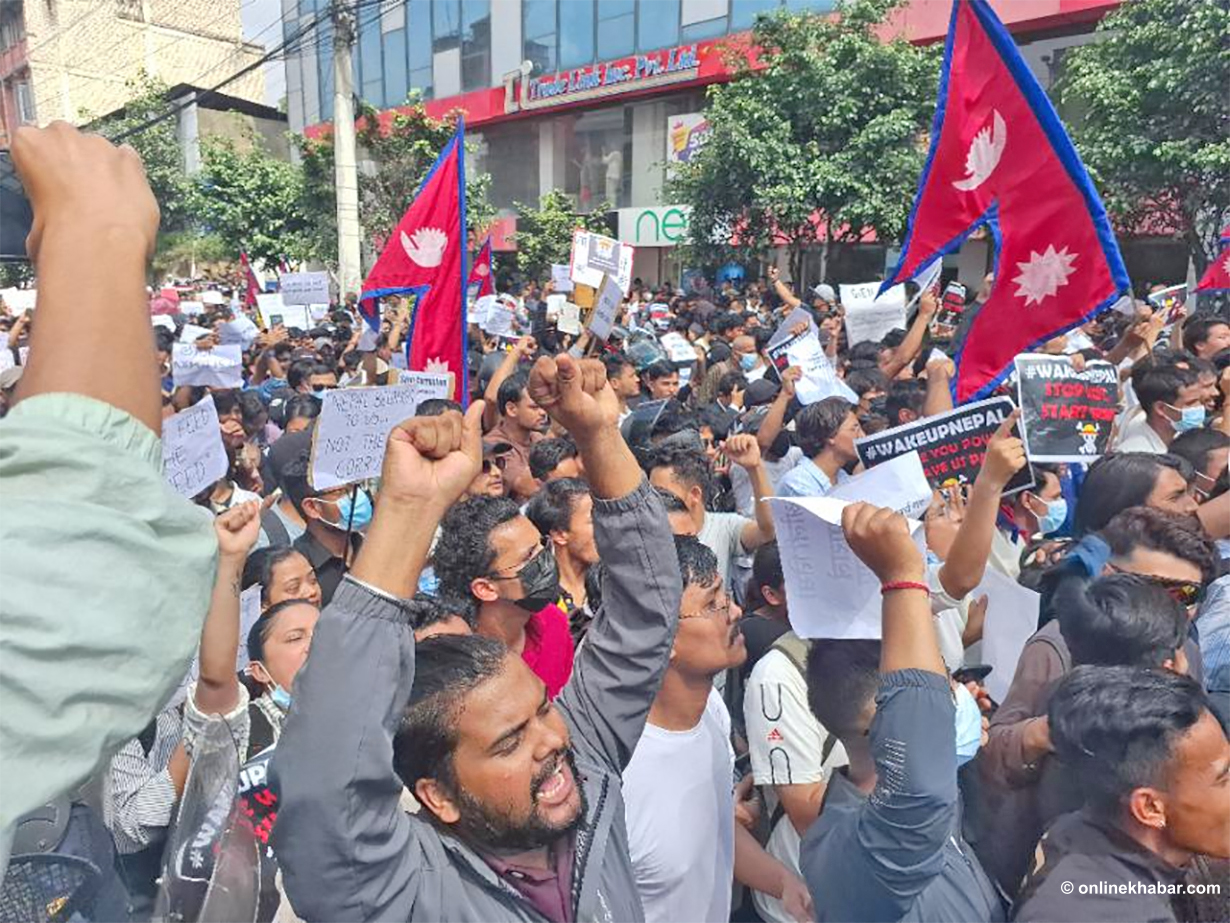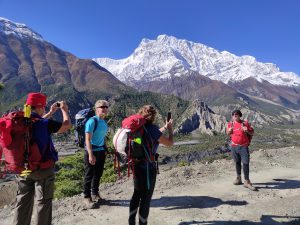
The current wave of global political upheaval, marked by incidents of power change in nations like Bangladesh, Nepal, Madagascar and Peru, carries profound geopolitical implications. These events of instability are not merely the product of internal misgovernance and public frustration, but are also deeply connected to the competition among international power nations and the unprecedented utility of digital media.
It is crucial to analysis the role of ‘Gen Z’ (Generation Z), the geopolitical use of social media and the potential impact of these changes on regional powers, especially neighboring India. It is essential to seek the answer to whether this cycle of global change is a recurrence of the Arab Spring or the beginning of a new political era.
The root cause of the power change in these four countries is internal misgovernance and the subversion of the democratic process, which has created a shared sense of global disappointment. In Bangladesh, decades of autocratic rule, human rights violations and allegations of electoral rigging fueled public discontent, culminating in the demand for an interim government.
In Peru and Madagascar, high-level corruption, constitutional crises and severe economic crises led to the downfall of political leadership. In Nepal, the extreme form of partisan self-interest, the short-sightedness of the leadership and the misuse of constitutional provisions have prevented political stability, with leaders prioritizing personal and party gains over national interest.
The ‘anti-incumbency’ sentiment against the established political class is so strong in all these countries that the public has considered taking to the streets as the last resort for change. This shared trend establishes weak democratic institutions and a lack of transparency as major security challenges.
‘Generation Z’ (Gen Z) refers to the youth generation born between 1997 and 2012 who grew up immersed in digital technology. The recent movement in Bangladesh has established the ‘Gen Z’ generation as the decisive force for change. This generation bypassed traditional political powers, using social media and digital platforms (such as TikTok, X, Facebook) to run rapid and massive movements.
A large participation of youth is also seen in anti-corruption movements in Peru and Madagascar, where they have adopted new ways of organising and mobilising. In Nepal, the energy of ‘Gen Z’ is more focused on frustration with political instability and demands for social justice.
This generation does not accept the political ‘status quo’; it demands transparency, good governance and fundamental change. This shared ‘spirit’ among the youth in all four nations suggests that youth power will be a major and unpredictable force in future political changes, one that traditional power structures show limited capacity to resist.
While social media has served as an essential tool for information flow and organisation in these movements, its geopolitical dimension is complex. Big Tech companies, which are primarily based in Western countries, play a dual role in this instability. On one hand, they support movements by advocating for freedom of expression; however, on the other hand, their ‘algorithms’ promoting the movement’s message may align with Western geopolitical interests.
In the case of Bangladesh, the rapid spread of information related to the movement, which led to the fall of a government perceived to be close to China, can be viewed as an indirect use of Western ‘soft power’ to balance Chinese influence. Therefore, the use of social media is not just a manifestation of internal discontent, but also an important tool in information warfare and geopolitical games, where data and algorithms can determine the direction of change.
The role of security forces was decisive for regime change in all four countries, particularly when they chose neutrality over suppression. In Bangladesh, considering the massive public movement and the risk of bloodshed, the leadership of the army and police decided to remain neutral, which led to the collapse of Sheikh Hasina’s government.
In Peru, the military’s political neutrality during the constitutional crisis validated the change through the impeachment process. In Madagascar, the divided role of the security apparatus during the political crisis has also fueled instability. While the army in Nepal has always tried to remain within its constitutional mandate, political interference has challenged its professionalism.
This makes it clear that when public dissatisfaction is nationwide and widespread under the leadership of ‘Gen Z,’ security forces are compelled to maintain neutrality, prioritising public interest and constitutional supremacy. Attempting to use them as a repressive tool of the government invites international condemnation and a crisis of internal legitimacy.
These changes are not created solely by internal discontent; international geopolitical competition has certainly added ‘fuel’ to them. The shadow of the escalating Cold War between the US and China (or Russia) is clearly visible in these developing nations.
The fall of a government in Bangladesh perceived to be close to China and the support from Western countries for human rights/democracy demands are seen as an attempt to counterbalance China’s growing influence.
In Nepal too, the increased interest and diplomatic activism of Western countries with every government change suggests that this region is under the focus of Western powers as part of the Indo-Pacific strategy. The rise or fall of leftist leanings in Peru and Madagascar also reflects the influence of international powers. During internal crises, foreign powers try to achieve outcomes favorable to their interests through NGOs/INGOs, diplomatic pressure and economic incentives, thereby gaining an opportunity to use instability for their national benefit.
The massive public movement and youth power seen in Bangladesh can have direct and indirect effects on the internal and external security of neighboring India. Directly, instability can lead to an influx of refugees, illegal infiltration and cross-border crime from Bangladesh, which adds social and security challenges to India’s eastern and northeastern states.
Indirectly, the success of the ‘Gen Z’ digital rebellion and youth-led movement can inspire Indian youth to undertake similar movements on political discontent and socio-economic issues. If the cycle of instability increases the influence of China or Western powers in India’s border areas, it could pose a strategic threat to India’s regional geopolitical interests. Therefore, India is closely watching these regional developments, keeping its security concerns in mind and striving to maintain its influence.
It is important to compare the current changes with the Arab Spring, as the role of youth and movements against autocratic rule were central in both. The Bangladesh movement appears similar to the Arab Spring, where a long-standing ruling power was removed.
However, the Arab Spring was followed by political instability, civil war and the rise of military rule, which failed to institutionalise democracy. The continuous instability seen after power change in Nepal, Peru and Madagascar also raises a question mark over the future of democracy.
If these countries fail to ensure strong democratic institutions, good governance and economic reform through interim or new governments, this change could also fall into a cycle of instability and crisis like the ‘Arab Spring,’ where power nations get a chance to fulfill their self-interests. Thus, even though these changes signal a major political shift, establishing sustainable democracy remains the main challenge.
To protect internal security and dignity, it is imperative for Nepal to teach the ‘Gen Z’ generation about national interest and security resolve. For this, education on geopolitical sensitivity, national unity and constitutional values must be provided through curriculum reform.
Training in digital literacy and Critical Thinking is essential to protect youth from foreign-power-instigated disinformation and fake news on social media. Learning from the experiences of Bangladesh, Peru, and Madagascar, a zero-tolerance approach to corruption and misgovernance should be adopted and strict enforcement of the rule of law is the foundation of internal stability.
It is essential to make the security agencies professional, capable and impartial, free from political interference, so that they can maintain constitutional neutrality during a national crisis.
To avoid external security threats, Nepal must strictly adhere to a non-aligned and balanced foreign policy. Maintaining relations with both neighbors, India and China, on the basis of equal distance and mutual respect is wise. The tendency to use the interest of one neighbor against the other must be completely abandoned.
Nepal should in no way become a part of the strategic competition of major powers, as seen in Peru and Madagascar. Projects like the MCC (Millennium Challenge Corporation) should only be advanced with national consensus and transparency to neutralize allegations of foreign interference. Management of the open border and high-level diplomatic solution to border disputes are indispensable conditions for external security. Only this way can Nepal transform its geopolitical sensitivity into a security shield.
In conclusion, the global cycle of instability recently seen in Bangladesh, Nepal, Madagascar and Peru deeply exposes the importance of internal good governance and national unity. It sends a clear message that national interest must be placed above partisan self-interest, because weak internal good governance and political infighting are the major opportunities for international power nations to maneuver and increase their influence in the Indo-Pacific region.
To guarantee Nepal’s long-term security, it is mandatory to fully adhere to constitutional dignity, ensure corruption-free governance and maintain the constitutional neutrality of a security apparatus free from political interference.
Learning from these global changes, Nepal must encourage the rise of competent political leadership that focuses on the needs of the public and the nation’s dignity. To face these regional and global challenges, strengthening national unity along with emphasising economic self-reliance is the paramount necessity of today. Since dependency always increases the possibility of foreign meddling, increasing self-sufficiency in internal production, energy and food is imperative.
Furthermore, the active participation of the ‘Gen Z’ generation must be channeled toward a positive and national-interest-based direction through digital literacy and critical thinking. Externally, strictly adhering to a non-aligned foreign policy based on ‘equal distance’ and mutual respect with all world powers, including India and China, is the only fundamental mantra to ensure Nepal’s dignity and sustainable security. Learning from these global changes, Nepal must determine its own path to security and development.
























